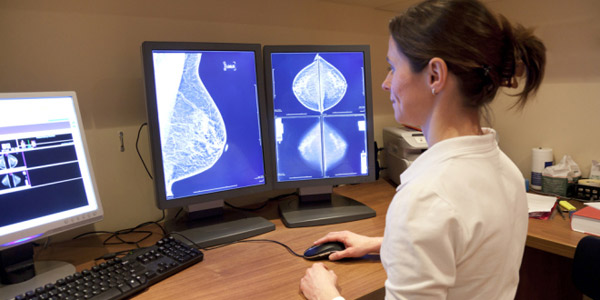 Researchers from the School of Medicine at The University of Texas Health Science Center at San Antonio have found evidence that directly links disrupted metabolism (energy production in cells) to a common and often fatal type of lymphoma. The finding was announced in Nature Communications.
Researchers from the School of Medicine at The University of Texas Health Science Center at San Antonio have found evidence that directly links disrupted metabolism (energy production in cells) to a common and often fatal type of lymphoma. The finding was announced in Nature Communications.
“The link between metabolism and cancer has been proposed or inferred to exist for a long time, but what is more scarce is evidence for a direct connection — genetic mutations in metabolic enzymes,” said senior author Ricardo C.T. Aguiar, M.D., Ph.D., associate professor of hematology-oncology in the School of Medicine and a faculty scientist with the Cancer Therapy & Research Center (CTRC) at the UT Health Science Center and the South Texas Veterans Health Care System, Audie L. Murphy Division.
“We have discovered a metabolic imbalance that is oncogenic or pro-cancer,” Dr. Aguiar said.
The team, which included members of the Health Science Center departments of medicine and biochemistry, investigators from the UT Southwestern Medical Center at Dallas and a group of collaborators from Austria, found that the gene that codes the enzyme D2-hydroxyglutarate dehydrogenase (D2HGDH) is mutated in a subset of cancers called diffuse large B-cell lymphomas. The mutated lymphoma cell displays a deficiency of a metabolite called alpha-ketoglutarate (a-KG), which is needed in steady levels for cells to be healthy.
“When the levels of a-KG are abnormally low, another class of enzymes called dioxygenases don’t function properly, resulting in a host of additional disturbances,” Dr. Aguiar said.
Dr. Aguiar indicated that a-KG has been recently identified as a critical regulator of aging and stem cell maintenance. “Thus, the implications of our findings are broad and not limited to cancer biology,” he said.
The study done by University of Texas Health Science Center at San Antonio.